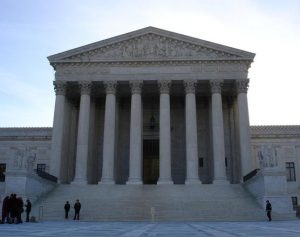 A little more than a year ago the United States Supreme Court decided a case that is having a significant effect on DUI cases around the country. In April, 2013, the Court decided the case of Missouri v. McNeely, 133 S.Ct. 1552, 185 L.Ed.2d 696 (2013). This post, and several posts to come, will look at McNeely and discuss its effect on DUI cases. This post will provide a background to that discussion.
A little more than a year ago the United States Supreme Court decided a case that is having a significant effect on DUI cases around the country. In April, 2013, the Court decided the case of Missouri v. McNeely, 133 S.Ct. 1552, 185 L.Ed.2d 696 (2013). This post, and several posts to come, will look at McNeely and discuss its effect on DUI cases. This post will provide a background to that discussion.
Police in the state of Missouri stopped Mr. McNeely because he was driving erratically. After field sobriety tests he was arrested for DUI. The officer took him to the station for a breath test. Mr. McNeely refused that test. The officer then took him to the hospital where he was given a blood test, despite his refusals. The officer did not obtain a warrant for the blood test. Mr. McNeely’s blood test result was over the legal limit.
Mr. McNeely’s lawyer filed a motion to suppress the blood test result. He argued in that motion that the police were required to get a warrant to draw Mr. McNeely’s blood, before they drew his blood. Because they did not obtain a warrant that blood draw violated the Fourth Amendment to the United States Constitution. Mr. McNeely’s lawyer asked the court to exclude the test because of that constitutional violation.
 Southern Maine Criminal Lawyer Blog
Southern Maine Criminal Lawyer Blog Much to my surprise the Maine Legislature voted overwhelmingly to reject extending the lookback for OUI’s from ten years to fifteen. In my
Much to my surprise the Maine Legislature voted overwhelmingly to reject extending the lookback for OUI’s from ten years to fifteen. In my  The State of Maine is debating whether to increase the look back time for
The State of Maine is debating whether to increase the look back time for  Many people I talk to think a DUI is something any lawyer can handle. As an experienced DUI specialist lawyer I can tell you that is not true. I have many hours of specialized training that most lawyers do not have. The following case is a good example of why a specialist is needed.
Many people I talk to think a DUI is something any lawyer can handle. As an experienced DUI specialist lawyer I can tell you that is not true. I have many hours of specialized training that most lawyers do not have. The following case is a good example of why a specialist is needed. Many people do not realize that a DUI or other misdemeanor conviction in the United States can bar you from entering Canada. Folks who head to Canada on vacation are sometimes turned away at the border because a member the family has a
Many people do not realize that a DUI or other misdemeanor conviction in the United States can bar you from entering Canada. Folks who head to Canada on vacation are sometimes turned away at the border because a member the family has a  It is always surprising that so many people are stopped by the police and arrested for DUI when the reason they were stopped in the first place had nothing to do with DUI. I think more
It is always surprising that so many people are stopped by the police and arrested for DUI when the reason they were stopped in the first place had nothing to do with DUI. I think more  I
I